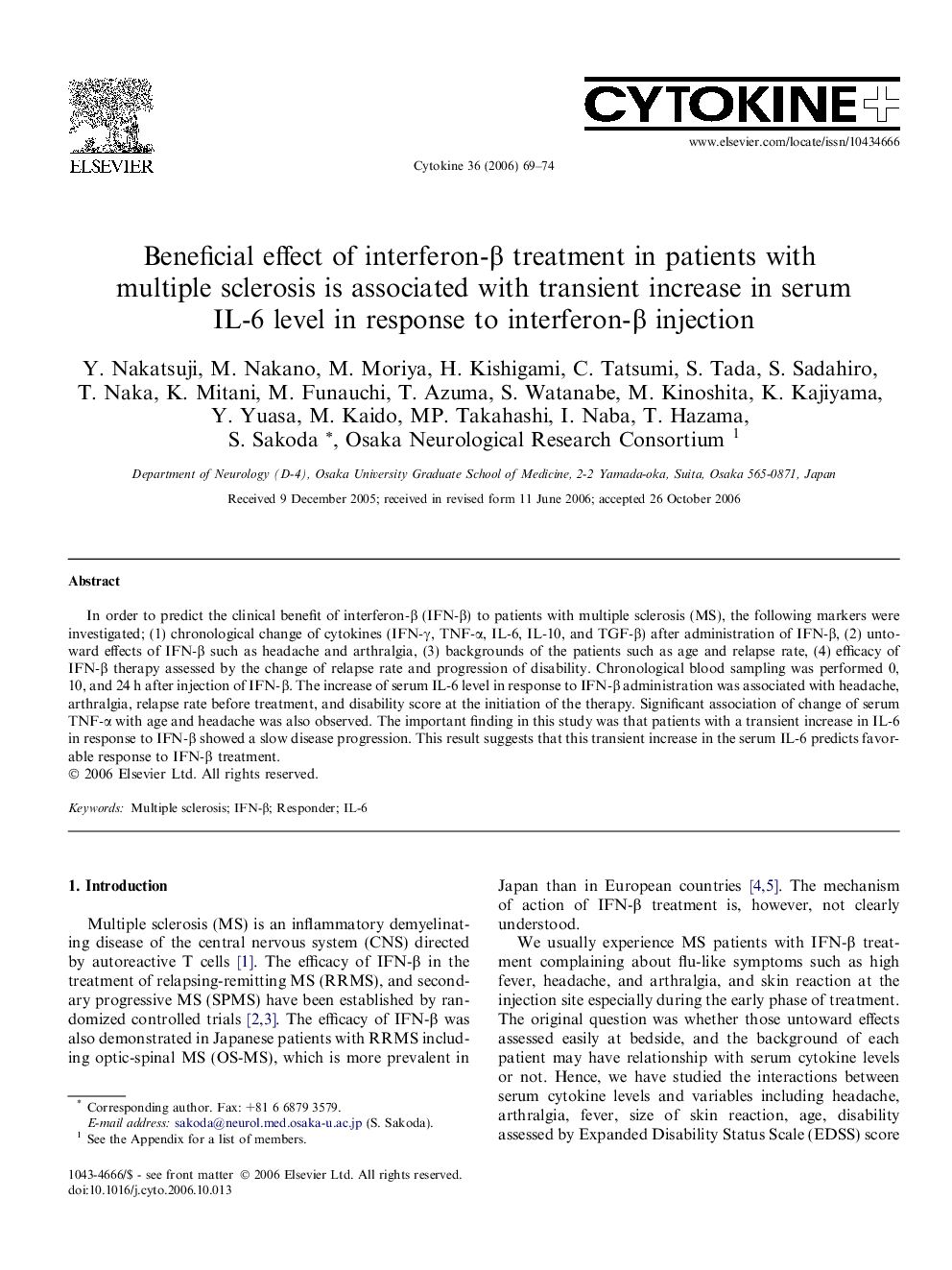| Article ID | Journal | Published Year | Pages | File Type |
|---|---|---|---|---|
| 2796003 | Cytokine | 2006 | 6 Pages |
Abstract
In order to predict the clinical benefit of interferon-β (IFN-β) to patients with multiple sclerosis (MS), the following markers were investigated; (1) chronological change of cytokines (IFN-γ, TNF-α, IL-6, IL-10, and TGF-β) after administration of IFN-β, (2) untoward effects of IFN-β such as headache and arthralgia, (3) backgrounds of the patients such as age and relapse rate, (4) efficacy of IFN-β therapy assessed by the change of relapse rate and progression of disability. Chronological blood sampling was performed 0, 10, and 24 h after injection of IFN-β. The increase of serum IL-6 level in response to IFN-β administration was associated with headache, arthralgia, relapse rate before treatment, and disability score at the initiation of the therapy. Significant association of change of serum TNF-α with age and headache was also observed. The important finding in this study was that patients with a transient increase in IL-6 in response to IFN-β showed a slow disease progression. This result suggests that this transient increase in the serum IL-6 predicts favorable response to IFN-β treatment.
Keywords
Related Topics
Life Sciences
Biochemistry, Genetics and Molecular Biology
Endocrinology
Authors
Y. Nakatsuji, M. Nakano, M. Moriya, H. Kishigami, C. Tatsumi, S. Tada, S. Sadahiro, T. Naka, K. Mitani, M. Funauchi, T. Azuma, S. Watanabe, M. Kinoshita, K. Kajiyama, Y. Yuasa, M. Kaido, MP. Takahashi, I. Naba, S. Sakoda,
